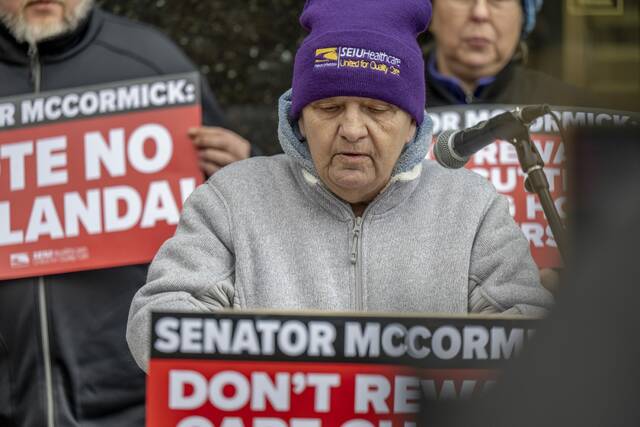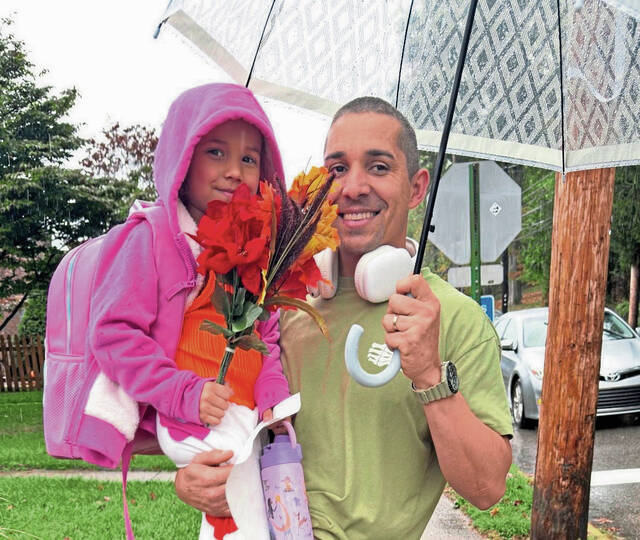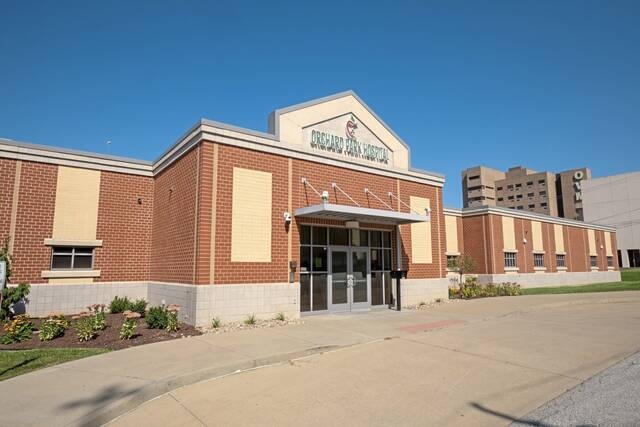A divided Pittsburgh City Council narrowly voted on Wednesday to rewrite Mayor Ed Gainey’s proposed zoning reform bill, effectively dooming his vision of forcing developers to create more affordable housing.
By a 5-4 vote, council members backed an amendment by Councilwoman Erika Strassburger, D-Squirrel Hill, to give incentives to developers who include affordable housing in their projects.
Gainey’s zoning reform plan would have made it mandatory for developers to set aside a portion of their projects for low-income renters. Strassburger’s proposal makes it optional.
The changes, which TribLive previewed last week, have spurred controversy among council members and the public during a yearlong debate about how the city can best provide housing for low-income residents.
In a statement, Gainey said he was “deeply disappointed.” He criticized Strassburger’s plan.
“The Strassburger amendment radically expands public subsidy to private developers, while including loopholes that allow them to walk away from actually providing affordable housing,” Gainey said.
The mayor also blasted Strassburger herself for last-minute changes to a compromise bill that he said had widespread support and had been negotiated in “good faith.”
“Unfortunately, Councilperson Strassburger instead chose to distort our compromise at the eleventh hour in a way that no longer serves the needs of our communities, while maintaining the appearance of a program that does,” Gainey said.
The vote to amend Gainey’s bill was backed by Strassburger, Bob Charland, D-South Side, Anthony Coghill, D-Beechview, Theresa Kail-Smith, D-West End, and Bobby Wilson, D-North Side, voting in favor.
Zoning reform in Pittsburgh is not a done deal yet. The bill now heads to the Planning Commission, a board appointed by the mayor that had previously supported Gainey’s version.
Strassburger said the city’s law department determined her changes were substantial enough to warrant a fresh review from the commission.
Once the commission votes on it, the measure will return to council for a final vote.
‘Commonsense’ approach
Under Gainey’s initial proposal, any new development with 20 or more housing units would have to earmark at least 10% of them as affordable for people making half of the area median income.
Strassburger’s amendments would allow developers who include that level of affordability to construct taller structures and avoid certain building requirements.
It would also let developers opt out of the affordable housing guidelines by paying $25 per square foot of residential floor space.
Strassburger is advocating a separate bill giving enhanced tax breaks as a sweetener to encourage developers to create more low-income housing.
The measure would not change existing inclusionary zoning mandates in the city’s Lawrenceville, Polish Hill, Bloomfield and Oakland neighborhoods.
Strassburger said her measure is a “commonsense” solution to encourage more affordable housing without turning developers off so much they build outside the city.
Her changes come after months of negotiations with the Gainey administration, trying to strike a compromise.
“It just wasn’t going to work,” Strassburger said.
The mayor’s supporters
The Gainey administration had offered some concessions, including a larger tax break, a shorter time frame for how long units must remain affordable and a $35-per-square-foot opt-out.
Supporters of mandatory inclusionary zoning say the mayor’s plan would create more affordable housing and ensure poorer residents have housing options even in the hottest markets.
But detractors worry a requirement would stall residential development altogether, shrinking the city’s supply of housing and driving up costs.
Councilwoman Barb Warwick, D-Squirrel Hill, sharply criticized the amendments her colleagues approved Wednesday.
She took aim at the option for developers get around building affordable housing.
“This opt-out fee makes it highly profitable for developers to pay a fee, get all the perks and not have to do any affordable housing in these developments,” Warwick said.
The money from the fee would be put into a fund for affordable housing initiatives.
But Warwick said there’s no guarantee such a fund would be applied to the most popular neighborhoods with the best amenities.
Councilwoman Deb Gross, D-Highland Park, another backer of the Gainey plan, took a similar stance, saying Gainey’s bill would promote mixed-income neighborhoods.
“We believe that is what the citizens of Pittsburgh want,” Gross said.
Gross said the inclusionary zoning already in place in her district has not slowed development and should be seen as a success story.
Rounding out the supporters of the mayor’s plan are Councilmen Khari Mosley, D-Point Breeze, and R. Daniel Lavelle, D-Hill District.
Another approach
Other council members backed Strassburger’s efforts.
“We all want affordable housing. We all believe in it. We all know the crisis,” Coghill said.
But he said he felt forcing private developers to build affordable housing is “not the right approach.”
Charland said he feared mandates would “restrict” the housing supply, stall development and make the limited housing on the market more expensive.
“Where we lose is when we don’t build more housing supply,” said Charland, the lone renter on City Council. “When we all have less options to choose between our rental units, we all pay more.”
Mosley said he couldn’t support Strassburger’s amendment. But though he’s not getting the zoning bill he had hoped for, he sees a glimmer of success in the efforts.
“One important thing we did was we elevated this conversation between the usual suspects to the everyday Pittsburgher, and I think that’s a powerful thing,” Mosley said.








